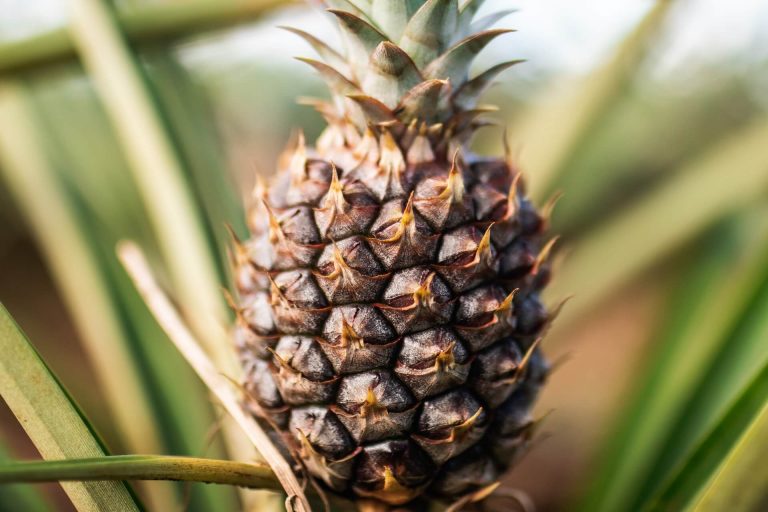The surprise announcement, which took effect on Monday, has fuelled public resentment on the island. Relations with the mainland have soured since Tsai Ing-wen of the independence-leaning Democratic Progressive Party was elected the island’s president in 2016 and refused to accept the one-China principle.
To counter the ban, the public and private sectors have been promoting sales of the fruit for local consumption.
Tsai has also been trying to reassure farmers in person, heading south to Kaohsiung, one of Taiwan’s pineapple production centres, on Sunday to address concerns.
“No need to panic or worry. The government is watching your back,” she said.
She promised the farmers that her government would help them open up the global market. She also called on the public, private organisations and government units to support the farmers by buying and consuming local pineapples.
On Sunday, other Taiwanese leaders, including Vice-President William Lai and Premier Su Tseng-chang, also went to southern Taiwan, accusing Beijing of trying to use the ban to punish Taiwan.
Major retailers, including PX Mart, I-MEI Foods, Largan Precision which supplies smartphone camera lenses to Apple Inc., and online shopping PChome, on Monday said they had either already put in orders for the fruit – ranging from 30 to 10,000 tonnes (9,800 tons) – or would be doing so to help the local farmers.
Beijing’s ban attracted strong opposition online.
In a tweet on Friday, Taiwanese Foreign Minister Joseph Wu said Beijing was banning Taiwan’s pineapples to “punish farmers in the south”.
“Remember #Australia’s #FreedomWine? I urge like-minded friends around the globe to stand with #Taiwan & rally behind the #FreedomPineapple,” he said.
Former Taiwanese president Ma Ying-jeou said it was understandable the ban had generated ill will on the island because it was announced suddenly during the harvest season and more than 95 per cent of Taiwan’s pineapple exports went to mainland China.
He said the two sides signed a farm product inspection and cooperation agreement in 2009 and should put aside their political differences to talk about the issue.
The agreement was signed when mainland-friendly Ma was president and adopted a policy to engage Beijing, which considers Taiwan part of its territory that must be returned to its control by force if necessary.
The main opposition Kuomintang said it was working with the authorities in the 14 city and county governments it controlled to promote local consumption of the pineapples.
Fan Shih-ping, a political-science professor at National Taiwan Normal University, said the ban was, in reality, a political move to increase pressure on Tsai.
“But …[it] has served only to fuel the anti-China sentiment and pushed the Taiwanese public further away,” he said.
He said the impact on Taiwan’s pineapple farmers would not be very severe because shipments to the mainland accounted for about 12 per cent of total Taiwanese pineapple production and because the Taiwanese government had committed to offer NT$1 billion (US$36 million) to help farmers tackle the issue.
Taiwan’s agriculture minister said on Friday Taipei would spend NT$1 billion on marketing Taiwanese pineapples and safeguarding the income of farmers.
According to official figures, the island produces about 420,000 tonnes of pineapples a year. Before the coronavirus pandemic hit about 12 per cent were destined for export.
Last year, 97 per cent of Taiwan’s pineapple exports were destined for the mainland, with 2 per cent going to Japan and 1 per cent to Hong Kong.




















